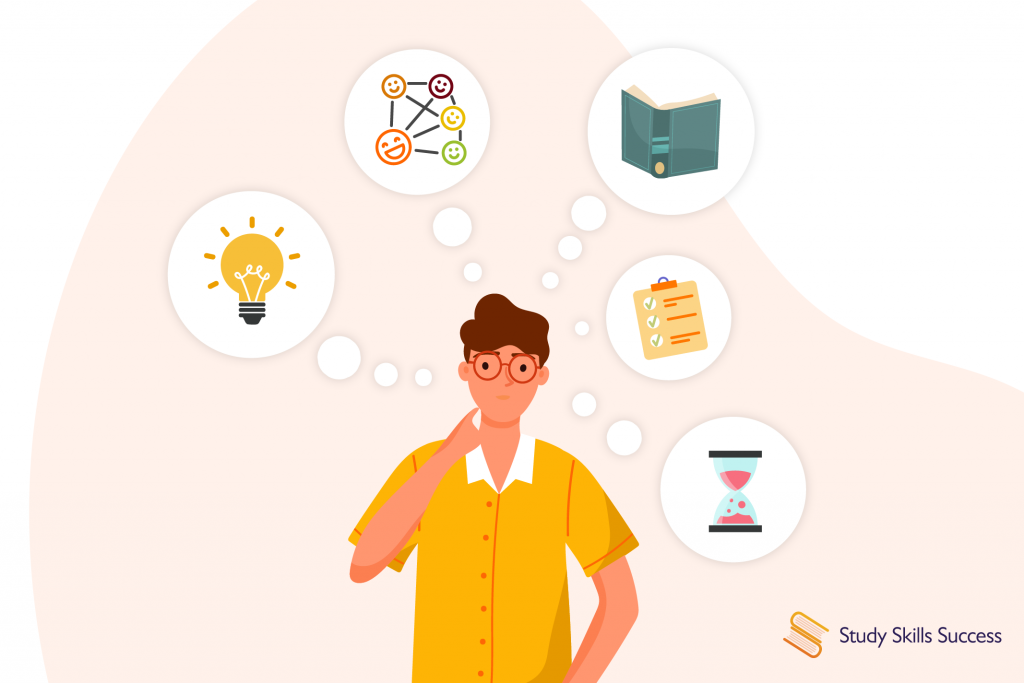Martin Moore has 30 years’ experience as a publisher, writer and editor. He has worked for Cambridge University Press, Pearson, BBC English and Oxford University Press. He is the lead author for Clarity’s Study Skills Success.
I was recently chatting to my friend Chris, a professor at a London university. After complaining about the end of the summer holidays, he moved on to talking about the start of the academic year and the arrival of new students.
‘There are basically two types of first years – those who are ready to study independently and those who aren’t.’ Of course, he went on to say, no student is the finished article on the day they arrive. It’s just that some already have the right mentality and basic skills in place to develop quickly.
As for the others, it’s an uphill struggle. They look to their academic tutors for the level of guidance and support they got from teachers at school. But in large universities that just isn’t possible. As Chris pointed out, it’s a simple numbers game. At school, you may be in a class of 15-20 pupils with one teacher; whereas at university the ratio is much, much higher. Independent study skills aren’t just a matter of academic good practice but they’re also a practical necessity.
And there was one more thing he said… the Covid crisis has only intensified the divide. As learning has shifted further online, the students with good study skills are even better placed to progress quickly.
So, as we contemplate a new school year, what skills should we be aiming to instil in the students who will be leaving us at the end of the year? Here are five (non-comprehensive) suggestions:
1. Encourage critical thinking
‘Yes, but what is critical thinking and how do I learn it?’ That’s what we hear so many students ask. In essence, it’s a mentality. It’s about not believing the first thing you read or hear. The good student automatically asks themselves questions like: ‘What’s the evidence for this? Is it completely reliable? What other points of view are there?’ Work with your students to develop these mental routines.
2. Focus on strategies for efficient reading and listening
One of the things that new university students have to cope with is an increase in the sheer volume of input – articles to read and lectures to listen to. Native speakers find this challenging enough. When you’re following a course in a second language, the challenge is even greater. This is where the reading and listening strategies we encourage really come into play. For example, the ability to skim read an article to assess its relevance and usefulness can save hours of precious time. Understanding the way signpost words are used can help students to follow the thread of a lecture even when they haven’t understood every word.
3. Build resourcefulness
Do you know the slogan ‘brain – book – buddy – boss’? Even if you don’t, I’m sure you’ll be familiar as a school teacher, with the principle of trying to reduce the number of questions from pupils:
brain – work it out yourself
book – look it up
buddy – ask a classmate
boss – only as a last resort, ask your teacher
This routine is often promoted in primary education. But it’s just as relevant at university, especially as the ‘boss’ is less available. Learning how and where to find answers to questions is a key skill for independent study. When you set an assignment, encourage your students to resolve their questions without you.
4. Practise group work
In most university courses, group work is a compulsory format and is often assessed. Marks are available for positive contributions. For non-native speaker students, the language and etiquette of group discussions may be unfamiliar. Set up mini projects and group work and equip your students with the language for turn taking and disagreeing.
5. Time management
The final tip is perhaps the most important – and the hardest to teach. With less day-to-day scrutiny from teachers, university students have to plan, prioritise and manage their schedules. But we know from our adult experience that everyone has their own approach to meeting deadlines. Some people are incorrigible last-minuters and others obsessively complete their work as soon as they’re assigned it. So there’s no one approach that suits everyone. But if left entirely to their own instincts, students can quickly lose control of their workload. Awareness building activities will help them recognise their own strengths and weaknesses and prepare strategies for overcoming any issues.
The move from school to university is a significant transition. In the end, most students find their way, with varying degrees of struggle. Our goal is to prepare them so they fall into the ‘ready to study’ category on the day they arrive at university.

